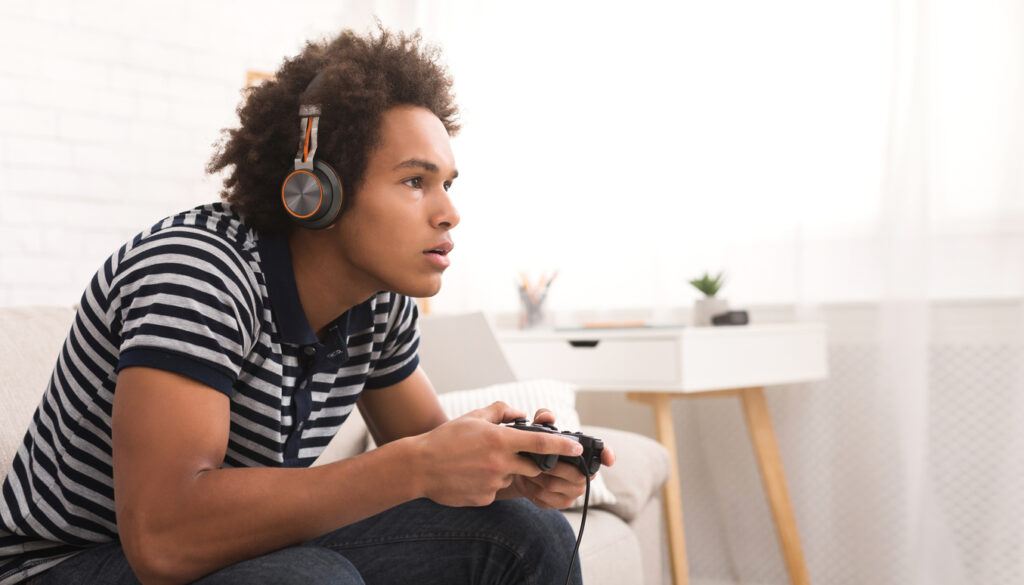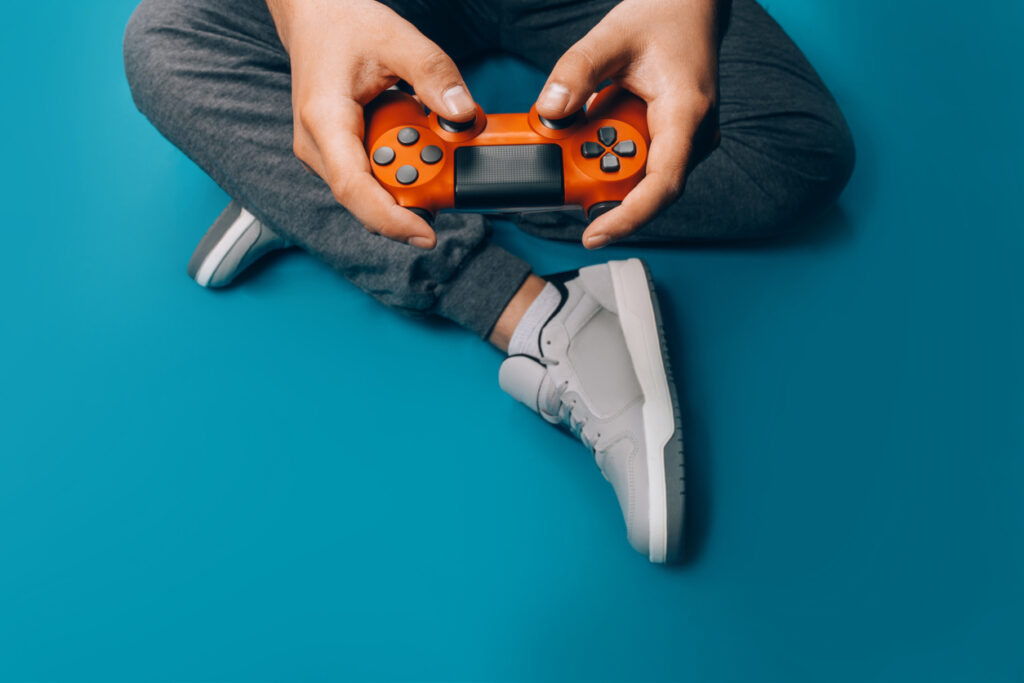What is Gaming Addiction?

Are teens too reliant on technology? When looking at the tech habits of your teen, do they seem compulsive and dependent?
Video game addiction is a common problem for people of all ages. However, young people are profoundly affected by tech addiction and its symptoms.
If you’re wondering about the causes, symptoms, and treatment options for gaming addiction in youth, we’re here to help. Stay in the know about the gaming addiction teens often deal with and find out how it’s treated.
Signs and Symptoms of Gaming Addiction
Gaming addiction symptoms are prevalent among teens who spend long hours on social media, playing video games, and engaging with other forms of tech. The primary symptoms of this type of technology addiction are:
Loss of Self-Control with Gaming Devices
When asking the question, “Is gaming addictive for teenagers?” one way we find the answer is through looking at many teens’ compulsive behavior with tech. Many teenagers feel intensely compelled to stay glued to their screens, which is a telltale sign of screen addiction.
The tech addiction teens often struggle with typically manifests in the form of lack of self-control with digital devices. For example, a teen may feel an intense urge to check on their social media pages every few minutes. Or, they might spend hours at a time playing video games without feeling like any time has passed.
Gaming Causing a Lack of Responsibilities
Another video game addiction symptom worth knowing about is routinely neglecting responsibilities. When a teenager spends hours on their devices, it’s often instead of doing their homework, doing chores, or spending time with family.
If you notice your teen avoiding their responsibilities, it can be worthwhile to have an open dialog with them about their tech habits. Many parents seeking help for teenagers with tech addiction find that their teens are hesitant to admit that they neglect important responsibilities in favor of tech.
Gaming Contributing to Social Isolation
The technology addiction teens often deal with centers around playing excessive video games, which can be an intensely isolating habit. Kids who play hours and hours of video games each day often withdraw from friends and family during any available free time to log onto their favorite games.
For many teens dealing with gaming addiction, the sense of community fostered by some online games comes as an excuse for their time spent online. A teen might argue that they make friends via their favorite online video games, for example, which is sometimes true. However, many teens sacrifice their in-person friendships for online ones, which can be unhealthy.
Back Pain, Eye Strain & Pain in General
Finally, one of the primary symptoms of video game addiction, and tech addition in general, is physical pain. Back pain and eye strain are both common physical problems associated with marathon gaming sessions, when teens spend hours at a time playing video games.
Research indicates that teens use screens for 7-9 hours per day. That’s enough time to easily lead to back pain, eye strain, and mental fatigue.
How Does Gaming Addiction Affect the Brain?
Gaming addiction can have a profound addiction on a teen’s brain. Excessive gaming, social media use, and more can decrease a teen’s attention span, exacerbate anxiety and depression, and lead to the formation of coexisting unhealthy habits.
Key Statistics of Gaming Addiction

Some essential statistics to know about technology addiction include the following:
- The average gamer spends nearly 9 hours per week playing video games
- 3-4 percent of gamers are addicted
- 8.5% of individuals between 8-18 are addicted to games
- 90-99% of American children play video games
- Research suggests that males are more likely to be addicted to video games than females
Tips for Limiting Teen’s Gaming Intake
If your teen is dealing with a form of technology addiction, such as social media or gaming addiction, follow these steps to limit their screen type and help them find balance.
Limits on Screen Time
Enforcing screen time limits can make a major positive impact on your teen’s tech habits. Limits can help your teen foster a healthy relationship with gaming and engage with friends, family, and hobbies more regularly again.
Communication with Teens
One of the most important aspects of your role as a parent in your teen’s life is engaging in open discussions. Your teen’s struggle with gaming addiction may feel lonely and isolating, which is why it’s essential that you let them know you care. Try to ask your teen questions about how they’re doing, the impact of tech on their lives,
Reward Positive Behavior
Another way to help your teen conquer gaming addiction is rewarding positive behaviors. Offering your teen incentives for building healthy habits can help them find the inherent value in unplugged activities.
Encourage Alternative Hobbies
In tandem with rewarding positive behavior, you can also help your teen recover from gaming addiction by encouraging them to develop alternative hobbies. Look for activities and skills that already interest your teen and give them a little push to pursue those outlets more. Whether it’s a sport, playing an instrument, baking, or another hobby, anything constructive can be a healthy alternative to screen time.
How does Gaming Addiction Affect Teen Mental Health?
Gaming addiction can lead to increased anxiety, depression, insecurity, and other issues for teens. Support for families and teens is available from our team at Evolve Treatment to help you counteract the mental health effects of gaming addiction. We specialize in several forms of mental health therapy for gaming addiction and offer multiple types of aftercare support for teenagers in recovery.
One treatment option often used for gaming addiction in teens is cognitive behavioral therapy (CBT). This form of therapy helps teens assess and change the mindsets and habits that contribute to their addiction. In addition to CBT, parents and teens can explore several other treatment options with Evolve.
What Are the Consequences of Gaming Addiction in Teens?
Gaming addiction in teens can have some major consequences in a teen’s personal life. Many teens who deal with gaming addiction, for example, find themselves increasingly isolated and disconnected from their friends, their family, and the world at large.
If your teen is currently dealing with the consequences of a gaming addiction, we want to help. Contact Evolve Treatment today to find out how we can help your teen find freedom from addiction.
































































